Do you enjoy zipping around your vacation resort community in a 4-seater golf cart but get frustrated having to stay separated from real roads during outings beyond the gates?
If so, you may wonder whether hitting nearby public streets can work or remain strictly forbidden.
Golf cart legality on public roads comprises a patchwork of hyper-local ordinances rather than one-size-fits-all national standards. Where certain specially modified carts register for access in some areas, attempting the same trip a town over could bring citations and penalties.
Let’s examine the gray area around golf cart street regulations more closely…
Is Golf An Olympic Sport?

Yes, as of 2022 golf is officially an Olympic sport. Golf was last contested at the 2020 Tokyo Olympics and will be featured at the upcoming 2024 Paris Olympics after over a century of absence from the Olympic program.
The International Olympic Committee voted to reinstate men’s and women’s golf competitions as medal events starting at the 2016 Rio Olympics through a competitive bid process amongst sports seeking inclusion.
Both individual men’s and women’s golf tournaments are held featuring 60 top players in stroke play format.
After successful showings in 2016 and 2021 with strong participation from elite players, golf is now firmly cemented as an official Olympic sport looking towards 2024 and likely for 2028 as well. So for those wondering “Is golf an Olympic sport?”, the answer is definitively yes today.
Are Golf Carts Street Legal?
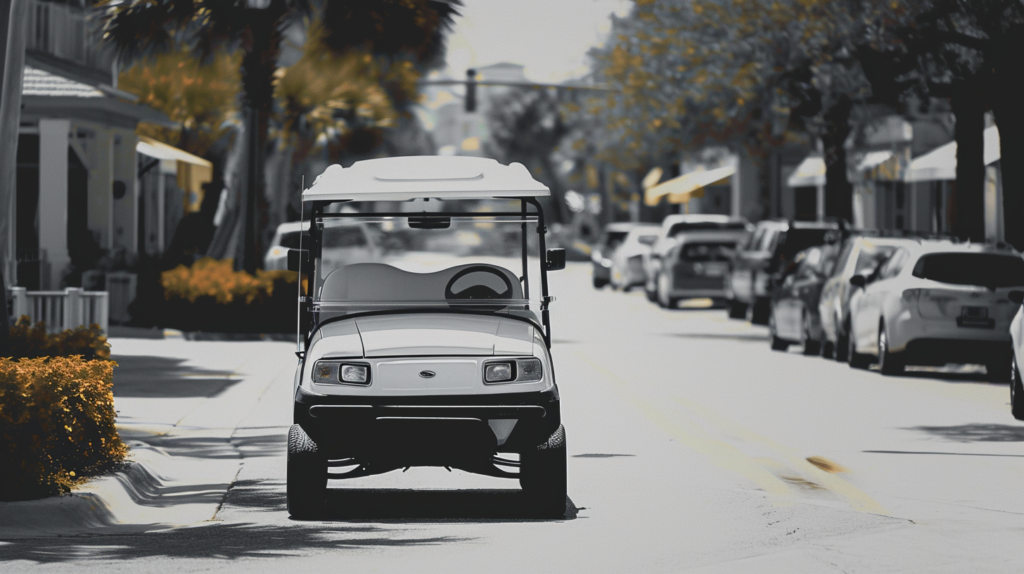
The short answer is sometimes. Golf cart legality on public roads includes a lot of gray area that depends on local laws and jurisdictions.
In certain places, properly registered and equipped golf carts can legally drive on some streets following safety guidelines. But in many areas, standard golf cart use remains prohibited on roads other than designated private cart paths meant for controlled access areas only.
So rather than a simple yes or no about the entire country, the legality question gets decided piecemeal on a state, county, city, or even neighborhood level.
Savvy golf cart owners must research relevant statutes where they live and properly prepare their carts to comply with all equipment, licensing, insurance, operating, and pathway requirements applicable in their regions.
Assuming rights to highways or busy thoroughfares rarely pans out since base model golf carts lack adequate speed, power, or safety protections to mix with vehicular traffic.
But options exist in some locales allowing partial integration with public roads under certain conditions.
Understanding and adhering to those specific legal allowances represents the only street-legal way to transition golf carts beyond courses or private communities onto any public access roadways.
Let me know if you would like me to elaborate on any part of this new section. I can provide additional details and examples about golf cart laws and public road usage regulations if helpful.
What Is Considered A Golf Cart?
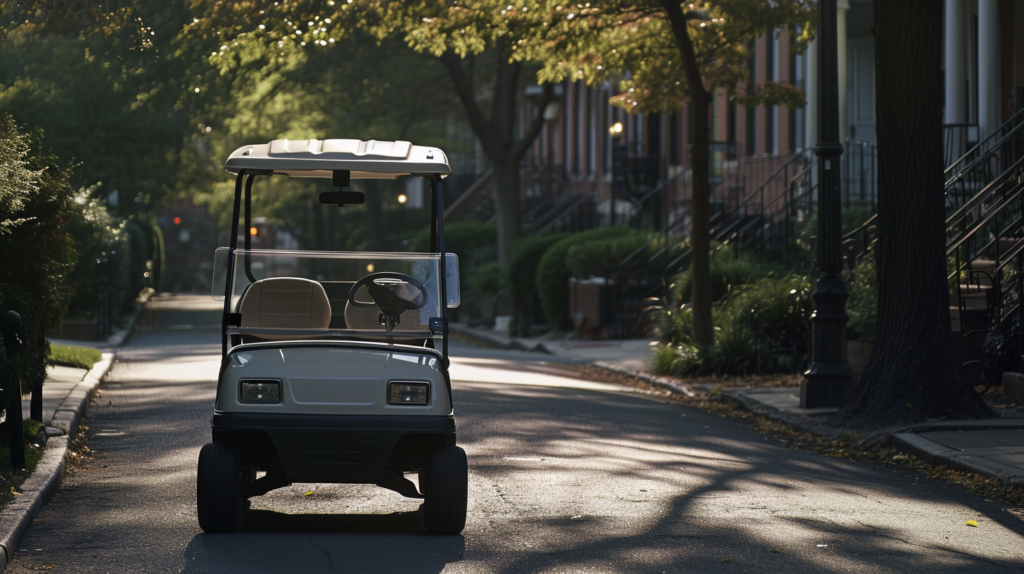
A golf cart is defined as a small vehicle that has four wheels and is powered by an electric motor. Golf carts are designed for short trips across golf courses, campgrounds, airports, and local areas in private communities.
They have a maximum speed of usually between 10 and 25 mph. Golf carts do not include seat belts or even doors in some cases. They provide basic transportation needs to travel short distances without walking.
Golf carts come in 2-passenger, 4-passenger, and 6-passenger sizes typically. They run on batteries that allow driving ranges of around 10 to 40 miles before needing recharged.
Golf cart batteries, motors, and speed controllers continue advancing to expand usage possibilities. But in their traditional forms, these small 4-wheeled vehicles lack safety provisions and power suitable for public roads.
Golf Cart Street Legality Varies By State And Local Laws

Laws concerning street-legal use of golf carts differ greatly across the United States from state to state and even city to city. Some states incorporate golf cart access into overall vehicle codes applying to low-speed vehicles.
Others classify carts separately with distinct golf-cart-specific legislation. Additionally, many states delegate rule-making around golf cart legality to local governments or neighborhoods.
For example, over 100 municipalities in South Carolina allow licensed drivers to operate golf carts on certain secondary roads with posted speed limits of 35 mph or less. Special permits and registration procedures apply in these areas.
Meanwhile, memorial cities prohibit golf cart use on all public access roads aside from designated golf-cart-only paths meant for local area travel.
Understanding the patchwork of state statutes and local ordinances determining golf cart legality poses challenges. Simply crossing town lines could put an unwitting driver in violation of newly applicable statutes.
And liability issues arise when unauthorized use on forbidden roads causes accidents.
Where Golf Carts Can Typically Be Driven Legally
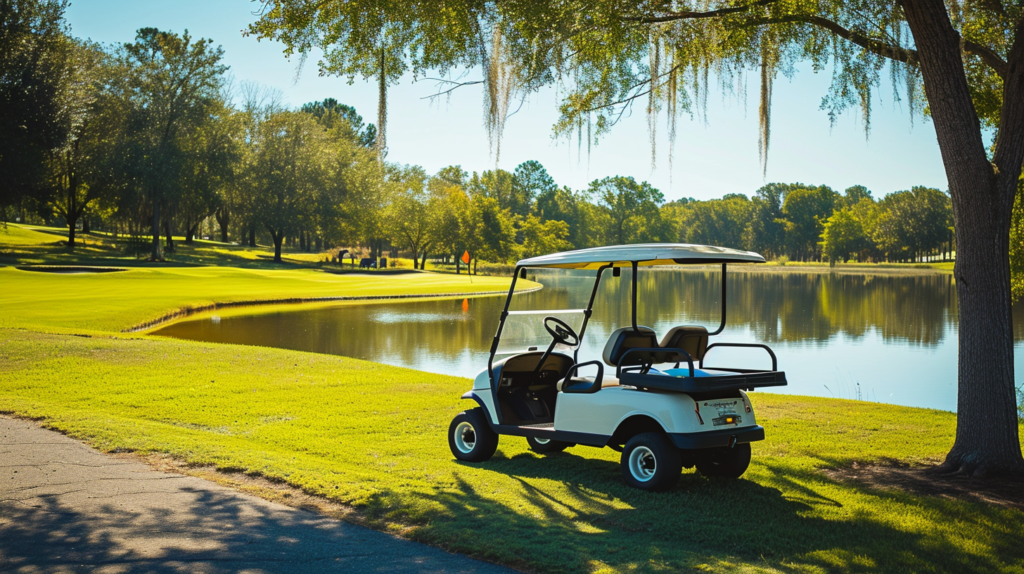
The most clearly legal places to drive traditional golf carts come on private property rather than public streets. Golf carts remain intended mainly for use shuttling golfers and gear around courses conveniently.
Resorts, airports, sports venues, campgrounds, and planned golf communities utilize interior cart pathways as well.
These cart-friendly locations often get designed with special golf cart lanes incorporated into the property infrastructure. Restaurants, hotels, parks, parking lots, neighborhoods, and other facilities in these areas connect via dedicated cart thoroughfares.
Riders can travel safely on clearly marked trails separated from regular automobile traffic.
Certain municipalities enable similar restricted golf-cart-only access in parts of their public road networks. Special lanes paint on streets in some downtown districts or shoreline communities to promote local economic activity.
These designated cart zones serve primarily for localized trips under safer reduced speeds without mingling amidst busy vehicular flow.
Requirements To Make Golf Carts Street Legal
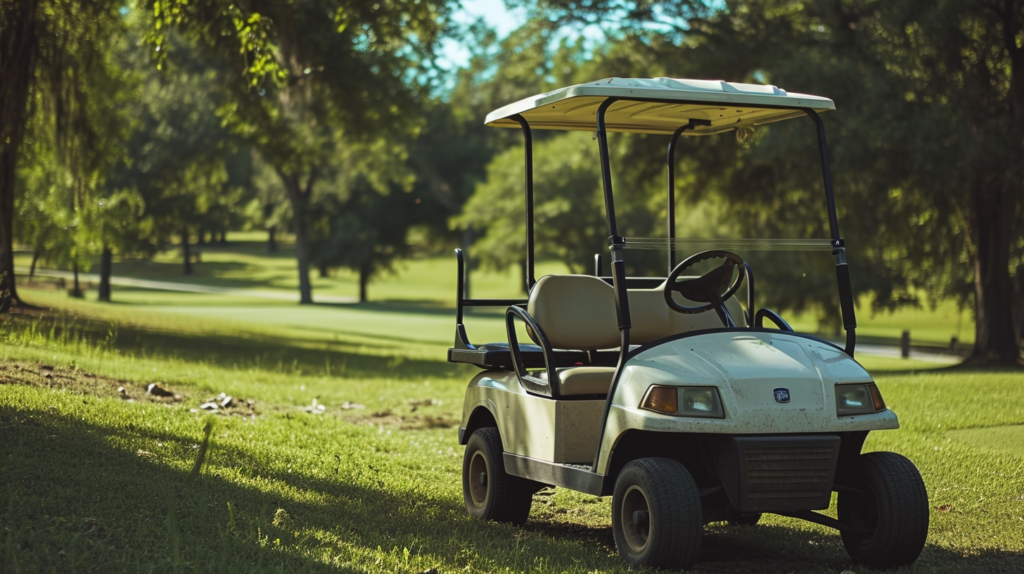
Where golf cart legitimacy on actual roads gets addressed in state legislation or local ordinances, certain equipment and process prerequisites frequently apply before obtaining legal operational status.
Rarely do laws allow factory-model golf carts right off dealership showrooms to drive legally on roads.
Common requirements to render golf carts street legal include adding headlights, brake lights, turn signals, side mirrors, and efficient brakes. Mechanical speed governors or regulators may need installed to keep carts below 30 mph ceilings too if mandated.
Having basic safety provisions, reflectors, seat belts, horns, and identication numbers can also rank as necessary.
Additionally, special registration, titling, insurance prerequisites, and driver’s license obligations often enter the equation for road-going golf carts. Some areas require all standard procedures and fees associated with registering an automobile.
Failing to properly register and insure golf carts before operating on roadways will likely void coverage following any accidents.
Safety Considerations And Restrictions
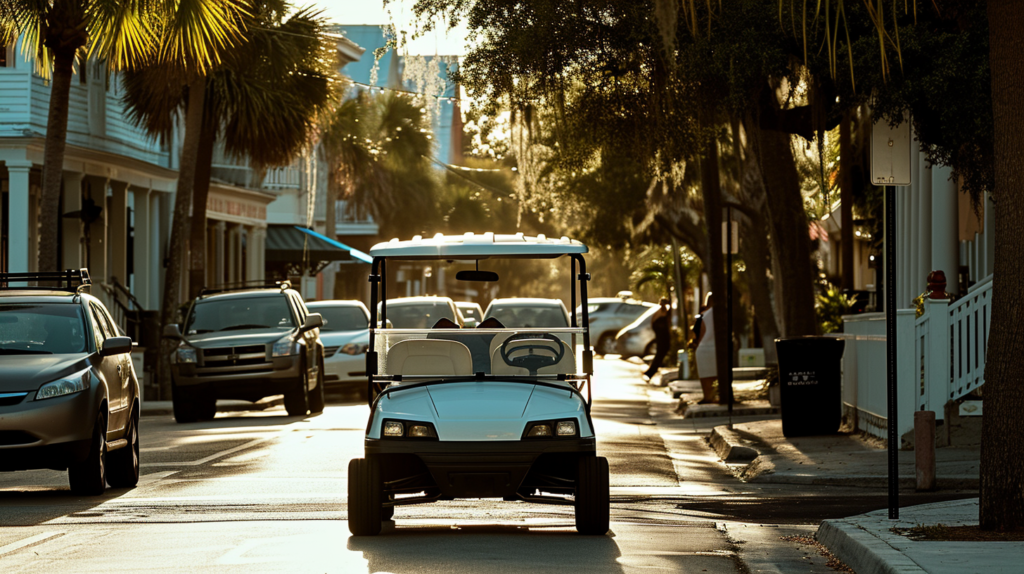
The lack of safety features and power built into golf cart designs plays a significant role in most legal restrictions keeping them off public streets. Golf carts simply rate as intended for only specialized, low-speed travel within certain controlled access environments.
Attempting to drive factory golf cart models on roads alongside typical vehicular traffic poses considerable risks. Their lack of safety restraints and vulnerability to crashes or rollovers amidst faster-moving cars endangers occupants.
Slow acceleration also impedes ability to avoid collisions by darting ahead out of harm’s way. And low visibility among bigger vehicles can leave golf carts difficult for other drivers to even notice.
As such, laws rightfully aim to prohibit mingling lightweight golf carts on roads with posted speed limits above 30 or 35 mph. Separate lanes or neighborhood streets with traffic calming measures in place represent sensible alternatives to integrate golfcart access where practical.
Liability Issues Around Illegal Golf Cart Street Use
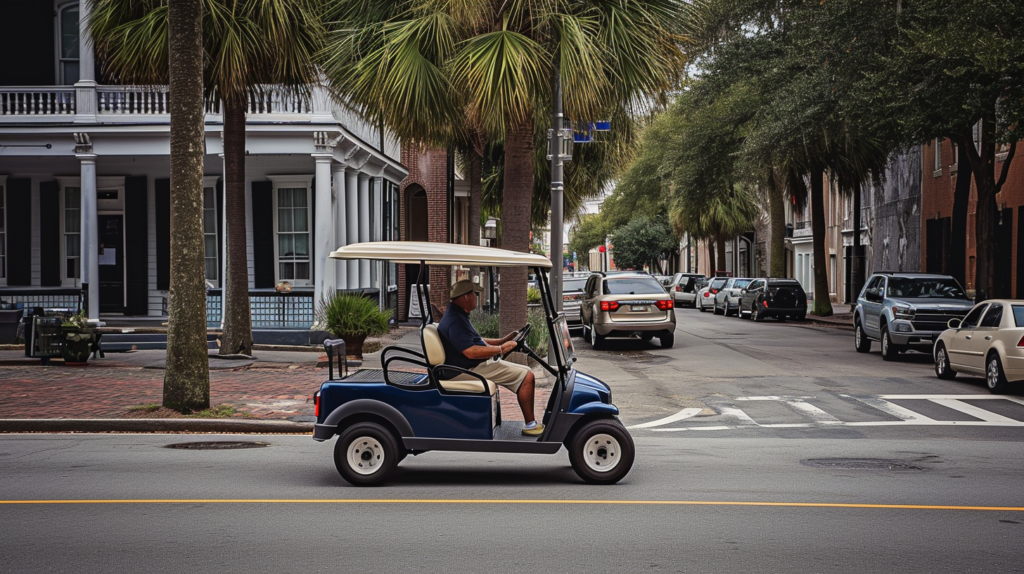
Given the legitimate safety and regulatory concerns limiting golf cart permissions onto public roads, attempting to operate one illegally on forbidden streets risks citations, penalties, license suspensions, and more.
Beyond punishments, the driver also likely voids any insurance coverage that otherwise would apply with lawful operation.
Receiving traffic tickets for unregistered vehicles, lacking required equipment, ignoring posted restrictions, or impeding traffic flows all remain possible when unlawfully running golf carts on interdicted roads.
Fines of $75 up to $250 commonly apply to such infractions along with assessments of points against the violator’s license.
Worse still, causing an accident while illegally driving a golf cart anywhere but a lawful private cart path or roadway carries severe liability.
Lacking vehicle registration and insurance while at fault for crashes or injuries incurred on public roads could stick the offending golf cart operator with devastating uninsured losses.
Lawsuits from injured parties along with damages and hospital bills could financially ruin unprotected illegal drivers for years.
Conclusion
While golf cart laws continue evolving, traditional cart use on public roads generally requires modifications, licensing, registration, insurance, and keeping speeds low on approved lanes. Their safety and power limitations prohibit intermixing with regular traffic.
Understanding specific state and local statutes before attempting transition from private cart pathways onto any public streets remains imperative to stay compliant and avoid citations or liability issues.



